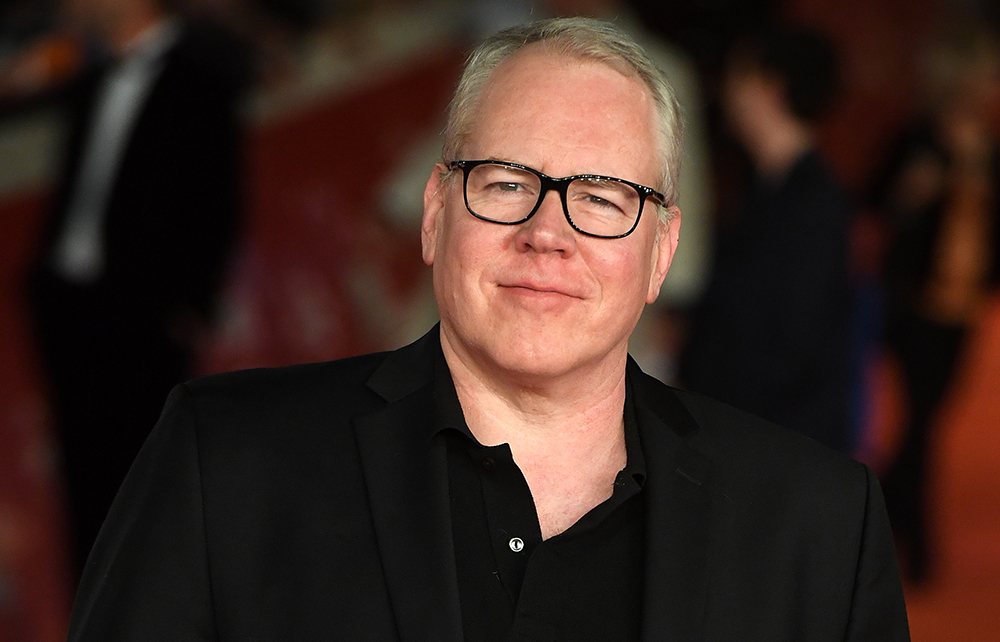Bret Easton Ellis’s novels were my literary gateway drug when I was young, the stylised bleakness of his debut Less Than Zero a model for my own writerly aspirations. He was a wunderkind. The fact that he’d written his first novel while still a teenager seemed incredible to me as I read and re-read it: a book with little plot but with so much life.
The Shards can be usefully thought of as both a prequel to Less Than Zero and a presentation of the atmosphere and circumstances that brought that novel into being. Ellis has spent much of his career exploring the territory between fiction and autobiography. Lunar Park (2005) was a kind of faux autobiography, while Imperial Bedrooms (2010) followed the semi-autobiographical protagonist from Less Than Zero into middle age. Now, instead of Clay Easton, the narrator of The Shards is called Bret Easton Ellis, although it would be a mistake to think this brings the novel closer to something like historical truth.
The Shards is preceded by a prologue full of slightly overwrought foreshadowing. Writing the novel has, we read, pushed Ellis to the point of breakdown. Merely recalling the terrible things that happened during the ‘awful year’ of 1981, when Bret was 17 and beginning his final year at Buckley School, was enough to send him to hospital with a panic attack. We understand from this prologue that the novel is a form of extirpation – an attempt to cauterise 40-year-old wounds and return to the era in which Ellis was working on his first novel.
Children abandoned by pill-popping parents medicate themselves with champagne, cocaine and mindless sex
We then roll back to the hyper-privileged world of Buckley School. It’s a bleak vision of early 1980s adolescence. The narrative turns around Bret’s social circle, comprising the school’s ‘golden couple’, Susan Reynolds and Thom Wright, and Ellis’s own girlfriend Debbie Schaffer, as well asa broader group of wealthy hangers-on. These are familiar figures from Ellis’s fiction – children abandoned by their pill-popping parents who medicate themselves with champagne, cocaine and mindless sex. Bret is unsure of his sexuality, sleeping with boys as well as his girlfriend, working on his novel and watching porn. It’s like Heathers meets Naked Lunch.
Into this familiar Ellisian world come two dei ex machina: a new student by the name of Robert Mallory, and a serial killer, dubbed ‘the Trawler’, who leaves his victims with ‘grotesque and upsetting’ injuries. As Bret and his friends party and shop at Ralph Lauren and listen to Peter Gabriel and REO Speedwagon (there’s all the precise cultural nods you expect), Mallory begins to unsettle the social world of Buckley just as the serial killer upends the monied self-satisfaction of the San Fernando Valley, and both become increasingly prominent in the paranoid imaginings of our protagonist. These narrative devices give The Shards a page-turning urgency. Ellis’s novels have never really been about plot, and you feel that it’s initially only grudgingly that he employs the traditional engines of narrative.
The book’s chapters are divided into sections of four or five paragraphs, and many of them end with an interjection from the present-day Ellis, writing the novel in his mid-fifties, drawing the reader’s attention towards the machinations of plot. ‘I didn’t know it yet’ is repeated so often it becomes a kind of tic. These ironic concluding flourishes feel heavy-handed, almost designedly so. It’s as if Ellis wants to have his cake and eat it, both enjoying the benefits of traditional plotting and sending them up at the same time. It’s important, I think, that Bret in the novel is writing Less Than Zero, a book in which, as he says in The Shards, ‘there was no story, there were scenes but it didn’t have a narrative exactly, there was just this drifting numb quality that I was trying to perfect’. Here there is story, lashings of it, and it makes for a rollicking read.
Behind the plotting, The Shards is a novel about nostalgia, about the distance between the almost-adulthood of 17 and the late-middle age of the author. There’s a sense throughout of bafflement from the contemporary authorial voice that he had ever been as young and daring as he was as a teen-ager. This seems to be the deep lesson of this Bildungsroman – that growing old is a brutal and painful process, with the fictional serial killer a metaphor for the blows and traumas that knock our youthful boldness out of us.
Ellis is no longer a writer whose novels are front-page news. There’s something a little dated about his form of autofiction – it reeks of the 1990s and Noughties, of W.G. Sebald and David Shields. But The Shards is a truly wonderful novel, a book that reminded me of his friend Donna Tartt’s The Secret History, but which also summons the brilliance and beauty of his own debut. I devoured it, delighted not only that Ellis has written his best novel since American Psycho but that it feels like the work of a writer who has found a way of wedding the traditional satisfactions of the novel to his own inimitable style.






Comments